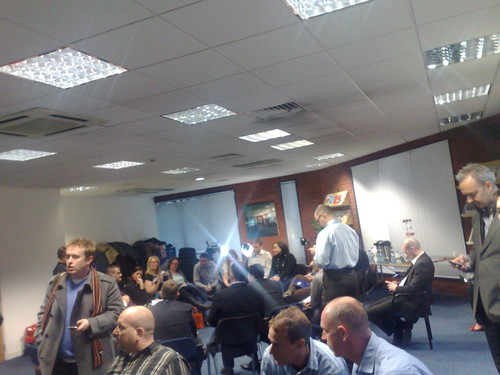This week I'm going to the TruLondon recruiting unconference. I went last year (that's one of my pictures from last year's event) and really enjoyed it - see my post on XpertHR.
This year I am going back in a freelance capacity to help out Lesanto and the blog squad ie I will be producing content from the event. I'll also be listening in to the different tracks and look forward to meeting some interesting people in the recruitment, HR and social media world.
To find out more on this week's event, look at:
And follow the week's activities on Twitter on the #trulondon hashtag
No doubt the event will be a great success which is why I think organisations should consider adopting this type of format for knowledge sharing and helping build connections internally. Why do I think this?
Take a look at the points I made about what I felt made last year's Trulondon so eye-catching . . .
- The format is less about lectures and more about facilitated discussion
- That means participants are expected to interact with discussions
- The event is split into different streams or 'tracks' providing attendees with a broad range of topics to dip in to
- Track leaders, as they are called at TRU London, are experts in their area so can facilitate a high level conversation around their topic
- Social media and social networks provide the communication channels for the event
- Unconferences attract a far greater audience online than at the event thanks to the live coverage on Twitter, Facebook and blogs.
- The event will be unpredictable - taking thinking in different directions
- It is rare to attend events where HR, recruitment and social media intersect at the same place and at the same time
Boil these points down and you get . . .
- Facilitated discussion
- Highly interactive format
- Broad range of topics overed
- Subject specialists leading discussion
- Social media channels make the content highly shareable - and those who can't attend in person can still participate
So, do learning events at your organisation provide all these elements in one event? I could see the unconference approach working in larger businesses that have subject specialists and teams that do not regularly share what they are up to.
On a basic level, organisations have the specialists, the content (ie what they do/are working on/managment information) and the need to share information effectively. An unconference can enable that - and help connect people in a more powerful and meaningful way.
